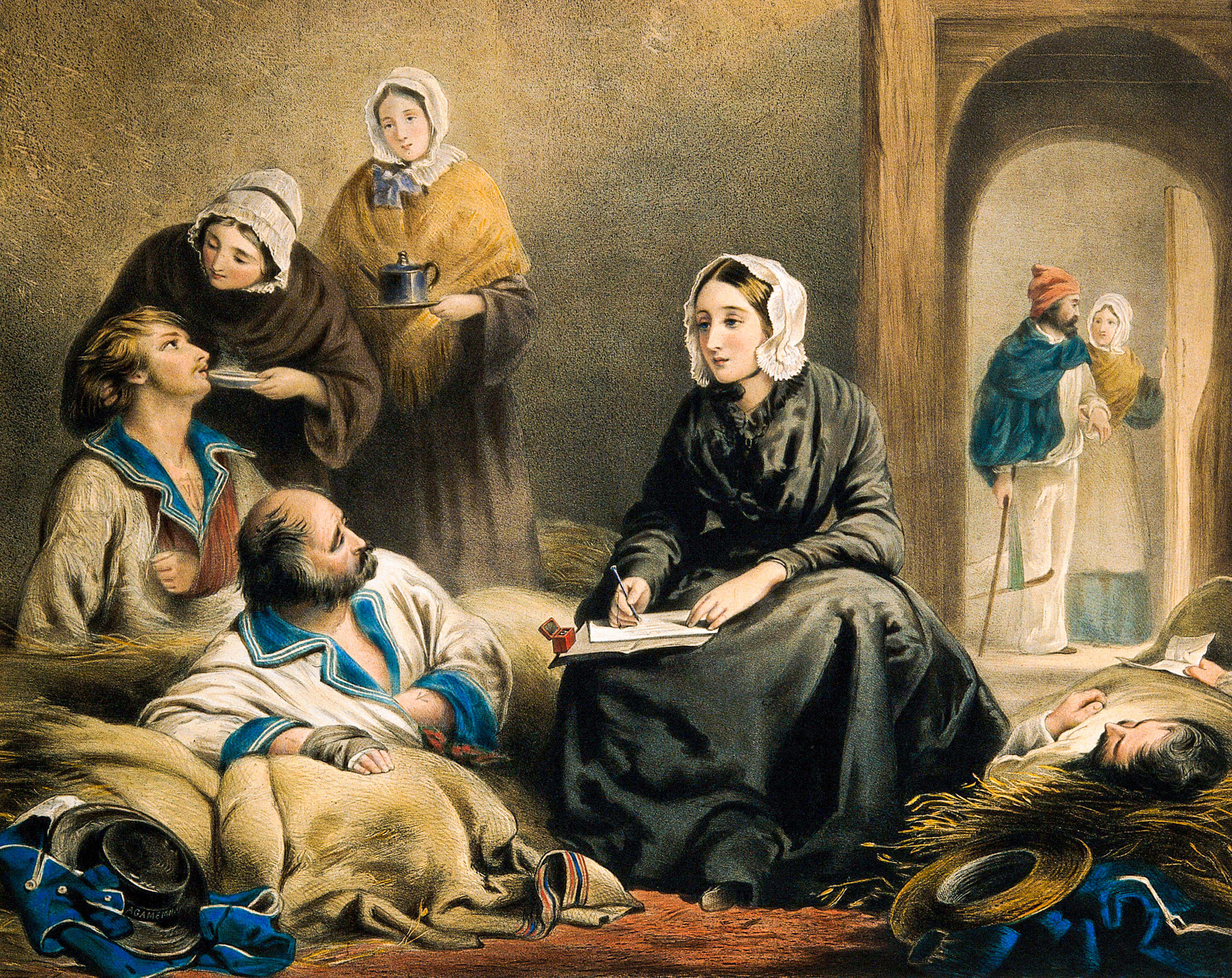Florence Nightingale at work in the Therapia Hospital in Turkey during the Crimean War—19th-century portrait, print.
Florence Nightingale’s 200th birthday comes with added reverence in 2020, as doctors and nurses fight to save lives amid the COVID-19 pandemic. Because of Nightingale’s trailblazing leadership, the maintenance of impeccable sanitary conditions in hospitals is a standard practice today. This wasn’t always the case. Born on May 12, 1820, in the Italian city of Florence, into an affluent British family, Nightingale became a nurse over her parents’ objections. At the time, nursing was not a highly respected profession. Nonetheless, she persevered. During the Crimean War (1853–56), she and a team of 34 nurses treated British and allied soldiers in military hospitals in Scutari, Turkey. Nightingale was known as the “Lady with the Lamp” because she wandered the wards at night checking on patients.
In wartime conditions, nurses were not changing their uniforms or aprons and worked with the same equipment day after day. Amid rodents and bugs, the wounded were left on stretchers strewn throughout hospital hallways. The number of ill steadily increased, and more soldiers were dying from infectious diseases like typhoid and cholera than from their battle injuries. As head nurse, Nightingale tackled the overcrowding and unsanitary conditions. In addition, she coped with shortages of bandages, clean water, and soap. Nightingale developed simple yet effective methods that ultimately saved many lives: maintaining good hygiene, regularly washing hands, and carrying out evidence-based practices.
Nightingale was the first to identify the impact of health workers’ hygiene on patients’ mortality rates. She established standards of care, requiring such basic necessities as bathing, clean clothing for nurses, fresh dressings, and adequate food for patients. According to a royal commission, before Nightingale’s reforms, an estimated 16,000 of the 18,000 deaths were from preventable diseases—not battle. But as a result of her work, sanitary conditions improved, and the death rate fell by two-thirds. After the war, she campaigned for hospital reforms and enforced high sanitary standards in caring for the sick.
In 1860, she established the Nightingale Training School for Nurses at St. Thomas Hospital in London, where women from all societal classes enrolled. She is credited with making nursing a respectable career for women. Nightingale wrote more than 150 books, pamphlets, and reports on health-related issues. Her greatest achievements were in creating social reform in health care and nursing—the effects of which are still felt today.
Image credit: © incamerastock/Alamy Stock Photo
Related Links:
- Why Florence Nightingale Matters Today
COVID-19 threatens to shut down a museum dedicated to Nightingale’s work.
(Source: Indian Express, May 12, 2020) - The Crimean War
The Crimean War reshaped Europe’s power structure.
(Source: History.com, August 21, 2018) - The History of Handwashing
The link between handwashing and health was first made less than two centuries ago.
(Source: Global Handwashing Partnership; accessed: June 1, 2020) - Florence Nightingale
Read more about Nightingale’s life and career; includes links to related articles and a graphic of Crimean War deaths that demonstrates her contribution to documenting health statistics.
(Source: Britannica.com; accessed June 1, 2020)




